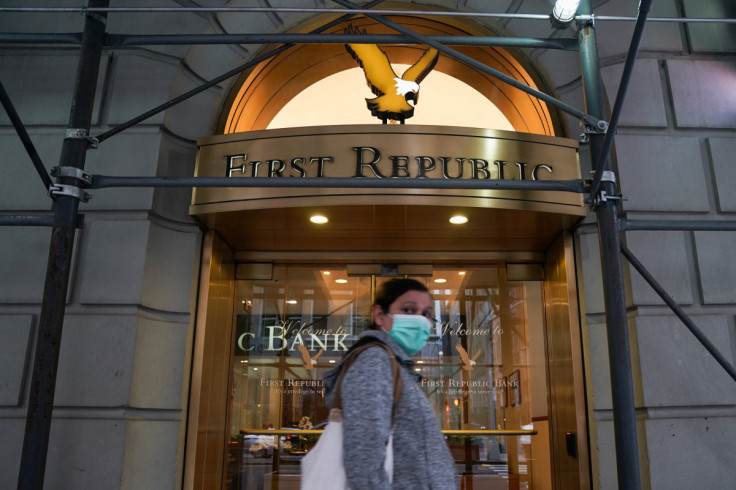US Banks Face Scrutiny As Fed Rate Decision Looms

A scramble by troubled U.S. lender First Republic Bank to secure a capital infusion kept worries about the broader banking sector alive on Wednesday as authorities considered steps to further strengthen financial stability.
While recent market turmoil has eased, the Federal Reserve's meeting later in the day is now a major focus for investors, with traders split over whether the U.S. central bank will be forced to pause its hiking cycle to ensure financial stability.
The Fed's relentless rate hikes to rein in inflation have been partly blamed for sparking the biggest meltdown in the banking sector since the 2008 financial crisis.
The collapse of Silicon Valley Bank, which sank under the weight of bond-related losses due to surging interest rates, kicked off a tumultuous 10 days for banks which culminated, for now, in the 3 billion Swiss franc ($3.2 billion) Swiss regulator-engineered takeover of Credit Suisse by rival UBS on Sunday.
The wipeout of Credit Suisse's Additional Tier-1 (AT1) bondholders has sent shockwaves through bank debt markets, and some Asian lenders may find it difficult to replenish their capital by issuing AT1 bonds, Citigroup said in a research note on Wednesday.
And worries over the health of mid-sized U.S. lenders linger, particularly First Republic.
For now, Credit Suisse's rescue appears to have assuaged the worst fears of systemic contagion, boosting shares of European banks and U.S. regional lenders.
The S&P 500 banks index rallied 3.6%, its largest one-day gain since November.
However, First Republic's efforts to secure a capital infusion continued without success on Tuesday, as the troubled regional lender started to plan for the possibility it may need to downsize or get a government backstop.
That sent shares of First Republic tumbling 9% in extended trade on Tuesday evening, having surged as much as 60% and closing regular trade up 30%. First Republic has shed 80% of its market value this month.
The San Francisco-based bank is looking at ways it can downsize if its attempts to raise new capital fail, three people familiar with the matter told Reuters. JPMorgan Chase has been helping the bank find new sources of capital after a $30 billion injection of deposits from big banks failed to stem fears over its viability.
The scenarios were being discussed as major bank chief executives gathered in Washington for a scheduled two-day meeting starting Tuesday, sources familiar with the matter said.
Among options was the possibility the government could play a role in lifting assets out of First Republic that have eroded its balance sheet, Bloomberg News reported on Tuesday, citing people with knowledge of the situation.
'FEEL SECURE'
Policymakers from Washington to Tokyo have stressed the current turmoil is different from the crisis 15 years ago, saying banks are better capitalised and funds more easily available.
Still, Australia's prudential regulator has started asking the country's banks to declare their exposure to startups and crypto-focused ventures following the collapse of Silicon Valley Bank, according to the Australian Financial Review.
U.S. Treasury Secretary Janet Yellen said the country's banking system was sound despite recent pressure.
Deputy Treasury Secretary Wally Adeyemo said a review of the failures of Silicon Valley Bank and rival Signature Bank was in order.
"It's ... important that we review the failures of the two banks in question to ensure we have a set of rules and procedures for the banking system that continues to protect our economy and depositors across the country," Adeyemo said on Tuesday at an event hosted by the U.S. Hispanic Chamber of Commerce.
"We of course continue to monitor the current situation and consider what steps can be taken to further strengthen America's financial stability," he said, without elaborating.
Political pressure continued to grow in the United States to hold bank executives accountable. The Senate Banking Committee's chairman said the panel will hold the "first of several hearings" on the collapse of SVB and Signature Bank on March 28.
($1 = 0.9280 Swiss franc)
© Copyright Thomson Reuters 2024. All rights reserved.





















